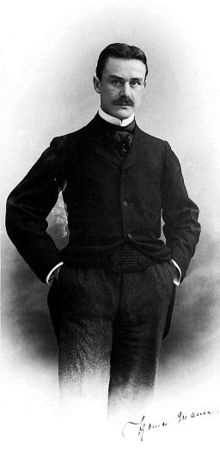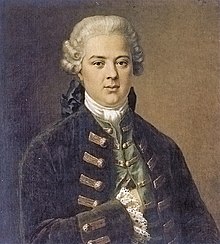
Back Patriciat urbà Catalan Patrizier German Patriciado urbano Spanish Patricien (Moyen Âge et Temps modernes) French Patrizio (titolo) Italian Патрициат (орта ғасырлар) Kazakh Patriciaat Dutch Patrycjat (średniowiecze i nowożytność) Polish Патрициат (Средние века) Russian 貴族 (神聖羅馬帝國與瑞士聯邦) Chinese


Patricianship, the quality of belonging to a patriciate, began in the ancient world, where cities such as Ancient Rome had a social class of patrician families, whose members were initially the only people allowed to exercise many political functions. In the rise of European towns in the 12th and 13th centuries, the patriciate, a limited group of families with a special constitutional position, in Henri Pirenne's view,[3] was the motive force. In 19th century Central Europe, the term had become synonymous with the upper Bourgeoisie and cannot be interchanged with the medieval patriciate in Central Europe. In the maritime republics of the Italian Peninsula as well as in German-speaking parts of Europe, the patricians were as a matter of fact the ruling body of the medieval town. Particularly in Italy, they were part of the nobility.
With the establishment of the medieval towns, Italian city-states and maritime republics, the patriciate was a formally-defined social class of governing wealthy families. They were found in the Italian city-states and maritime republics, particularly in Venice, Genoa, Pisa and Amalfi. They were also found in many of the free imperial cities of the Holy Roman Empire, such as Nuremberg, Ravensburg, Augsburg, Konstanz, Lindau, Bern, Basel, Zürich and many more.
As in Ancient Rome, patrician status could generally only be inherited. However, membership in the patriciate could be passed on through the female line.[citation needed] For example, if the union was approved by her parents, the husband of a patrician daughter was granted membership in the patrician society Zum Sünfzen of the Imperial Free City of Lindau as a matter of right, on the same terms as the younger son of a patrician male (i.e., upon payment of a nominal fee), even if the husband was otherwise deemed socially ineligible.[citation needed] Accession to a patriciate through this mechanism was referred to as "erweibern."[4][clarification needed]
In any case, only male patricians could hold, or participate in elections for, most political offices. Often, as in Venice, non-patricians had almost no political rights. Lists were maintained of who had the status, of which the most famous is the Libro d'Oro (Golden Book) of the Venetian Republic.
From the fall of the Hohenstaufen (1268), city-republics increasingly became principalities, like the Duchy of Milan and the Lordship of Verona. The smaller ones were swallowed up by monarchical states or sometimes other republics, like Pisa and Siena by Florence. Following these developments, any special role for the local patricians was restricted to municipal affairs.
The few remaining patrician constitutions, notably those of Venice and Genoa, were swept away by the conquering French armies of the period after the French Revolution, although many patrician families remained socially and politically important, as some do to this day.
In the modern era the term "patrician" is also used broadly for the higher bourgeoisie (not to be equated with aristocracy) in many countries; in some countries it vaguely refers to the non-noble upper class, especially before the 20th century.[5]
- ^ Charles Neider, The stature of Thomas Mann, 1968
- ^ Wolfgang Beutin, A history of German literature: from the beginnings to the present day, Routledge, 1993, ISBN 0-415-06034-6, p. 433
- ^ Pirenne, Medieval Cities: Their Origins and the Revival of Trade (1927) offers a late, developed view of the "Pirenne thesis" with origins in articles on the origins of urban constitutions in 1895: see Henri Pirenne#Pirenne Thesis.
- ^ Alfred Otto Stolze, Der Sünfzen zu Lindau. Das Patriziat einer schwäbischen Reichsstadt (Bernhard Zeller, Lindau/Konstanz, 1956) discusses this mechanism for accession to the Patriciate; "Wenn die Tochter eines Sünfzen Genossen sich mit Willen ihrer Eltern vermählte, so wurde der Ehemann aufgenommen, "der gleich der Sünfzen sonnst nit fähig wäre" gegen zwei Gulden, bzw. wie ein jüngerer Sohn"
- ^ T. K. Derry, A History of Scandinavia, London, George Allen & Unwin, 1979, p. 193, ISBN 0-04-948004-9